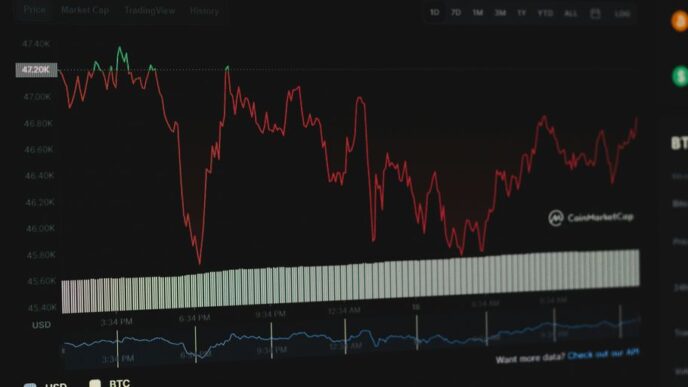Welcome to the captivating realm of electrical technology! From powering our homes to revolutionizing communication, electricity has become an indispensable part of our lives. But have you ever pondered the diverse forms that electrical technology can take? In this article, we will dive into the fascinating world of electrical technology and explore its applications in transportation, entertainment, and more. Get ready for some shocking insights into this dynamic field!
Introduction to Electrical Technology
In our increasingly technology-dependent world, it is crucial to have a fundamental understanding of the various forms of electrical technology and how they are utilized. Electrical technology can be broadly categorized into three main groups: renewable energy, storage, and generation.
Renewable energy encompasses energy sources that are continuously replenished, such as solar, wind, and hydropower. As we seek ways to reduce our reliance on fossil fuels, renewable energy technologies are gaining popularity. Storage technologies store energy for later use, employing batteries and fuel cells. Generation technologies produce electricity by utilizing generators and power plants.
Each of these categories has its own subcategories with specific applications. For instance, within renewable energy, there is solar photovoltaic technology for generating electricity from sunlight and solar thermal technology for heating water or fluids. Within storage, you find lead-acid batteries commonly used in cars and lithium-ion batteries prevalent in laptops and cell phones. And within a generation, nuclear power plants generate electricity through nuclear fission reactions, while coal-fired power plants produce electricity by burning coal.
Regardless of its form, electrical technology is an essential part of our modern world. By understanding the different types and their uses, we can make informed decisions on how to best utilize this vital resource.
Different Types of Electrical Technology
As electrical technology progresses, new types of technology emerge. Here are some popular types of electrical technology and their applications:
Solar Power: Solar power is a highly sought-after form of alternative energy. Solar panels convert sunlight into electricity, which can be used to power homes and businesses. Solar power is environmentally friendly and can result in significant energy bill savings.
Wind Power: Wind power is another increasingly popular alternative energy source. Wind turbines convert the kinetic energy of wind into electricity, which can be used to power homes and businesses. Wind power is eco-friendly and can contribute to reduced energy costs.
Hydroelectric Power: Hydroelectric power plants generate electricity by harnessing the energy of flowing water through dams and turbines. Hydroelectric power is clean and can lead to savings on energy bills. However, improper management can have adverse environmental effects.
Nuclear Power: Nuclear power plants generate electricity through the process of nuclear fission. Nuclear power is highly efficient but also poses significant risks if not managed properly. Mishandling can have severe environmental and health consequences.
Batteries and Chargers
Batteries and chargers are essential components of electrical technology, supplying power when no other source is available. Batteries come in various sizes, shapes, and voltages. Common battery types include:
Alkaline batteries are widely used in household items like flashlights and remote controls.
Lithium batteries: Lighter and longer-lasting, commonly found in laptops and cell phones.
NiMH batteries: Similar to lithium batteries, but rechargeable. Often used in digital cameras and cordless power tools.
Chargers provide power to batteries and come in two main types:
- AC chargers: Plug into wall outlets and provide power through an AC adapter.
- DC chargers: Connect to car cigarette lighters or other DC power sources and deliver power through a DC adapter.
Generators
Generators are indispensable in electrical technology. They convert mechanical energy into electrical energy and serve various applications.
During power outages, generators ensure continuity by providing electricity. They also power critical equipment in hospitals and other vital facilities.
Generators play a significant role in our lives and economy, and as technology advances, their importance will only grow.
Wires and Cables
Electrical technology employs different types of wires and cables, each with unique properties and uses.
Copper is the most common material for electrical wires and cables. It is an excellent conductor of electricity and highly durable, making it ideal for high-voltage applications.
Aluminum is another popular material, particularly suitable for low-voltage applications due to its low resistance and lightweight nature.
Glass fiber optics, coated with a conductive material, are used in high-speed data transmission for carrying large amounts of data at fast speeds.
Motors and Pumps
Motors and pumps are prevalent forms of electrical technology. Motors utilize electricity to create motion, while pumps use electricity to move fluids.
Motors find applications ranging from small toys to large industrial machines. AC motors are the most common type and are used in fans and washing machines. DC motors are employed when precise control is needed, such as in power tools and robotics. Brushless DC motors are gaining popularity due to their high efficiency and reliability.
Pumps move fluids within systems and serve various purposes, like water or oil pumping. Centrifugal pumps are common and use an impeller to propel fluid. Positive displacement pumps to ensure precise flow rates. Diaphragm pumps, suitable for low- or high-pressure applications, utilize a flexible diaphragm.
Switches, Sockets, and Circuit Breakers
Switches, sockets, and circuit breakers control the flow of electricity in homes and offices. They work together to provide power for appliances and lighting. Switches turn circuits on and off, sockets offer outlets for electrical devices, and circuit breakers protect against overloading.
Applications for Each Type of Electrical Technology
Different types of electrical technology find applications across various fields. Here are a few examples:
Alternating current (AC) powers homes, businesses, industries, and transportation systems. It is the most prevalent form of electrical power.
Direct current (DC) is used in portable devices like laptops and cell phones, as well as in specific industrial applications.
Solar power, generated through solar panels, provides electricity for residential and commercial use, reducing reliance on traditional sources.
Wind power, harnessed by wind turbines, generates electricity to power homes, businesses, and communities, offering a sustainable alternative.
Safety Tips When Working with Electrical Equipment
When working with electrical equipment, safety is paramount. Remember these tips:
- Ensure proper grounding of equipment to prevent electrical shock.
- Use appropriate insulation to protect against electric shocks and burns.
- Double-check all electrical connections before powering on the equipment.
Conclusion
Electrical technology is a constantly evolving field with ongoing advancements in design and application. We hope this article has provided you with a better understanding of the various forms of electrical technology and their current industrial uses. Whether in residential or commercial settings, electricity offers countless possibilities. With research and knowledge, you can uncover the boundless opportunities presented by electrical technology.













